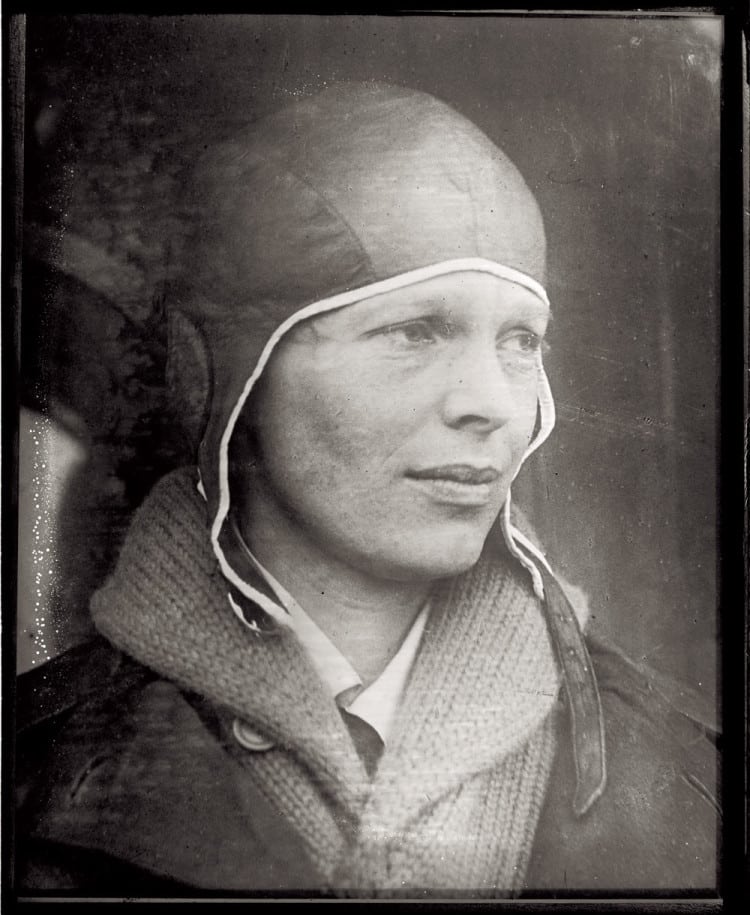The Yankee Flier | Amelia Earhart
In April 1928, a phone call came into the Denison Settlement House, a neighborhood resource center in Boston’s China-town. The caller was looking for a 30-year-old staffer named Amelia Earhart, who at first begged off, saying she was busy. But after being told it was important, she picked up the phone. And what she heard […]


Photo Credit : courtesy of the Boston Public Library, Leslie Jones Collection
In April 1928, a phone call came into the Denison Settlement House, a neighborhood resource center in Boston’s China-town. The caller was looking for a 30-year-old staffer named Amelia Earhart, who at first begged off, saying she was busy. But after being told it was important, she picked up the phone. And what she heard was: “How would you like to be the first woman to fly the Atlantic?”
Earhart’s reputation as an aviator was mainly regional then, centered on the small airport in Squantum that she’d helped launch the year before. Her profile was raised by coverage in the Boston papers as she worked to promote both women in aviation and flying in general (she once complained to the Boston Chamber of Commerce about the lack of publicity for aviation, and proposed having Will Rogers play Symphony Hall to raise money for an ad campaign).
Compared with Earhart’s later feats, the 1928 Atlantic crossing seems undramatic: As arranged by the flight’s organizers in New York, she joined the crew of the seaplane Friendship only as an observer (in her words, “a sack of potatoes”). Yet it made her an international celebrity, one who would continue making headlines up to—and beyond—her disappearance over the Pacific 80 years ago this July.
The 1928 trip also stands as testament to the Kansas native’s New England ties. After the Friendship took off from East Boston, it hooked south to Quincy and dipped its wing in a salute to Earhart’s friends at the Squantum airport. The airport is long gone today, but at the small state park that stands in its place, you can find an answering salute: a stone marker engraved with Earhart’s portrait and her quote that reads, in part, “I cannot claim to be a feminist but do rather enjoy seeing women tackling all kinds of new problems.”
Jenn Johnson
Jenn Johnson is the managing editor of Yankee magazine. During her career she has worked at or freelanced for a number of New England publications, including Boston magazine, the Boston Herald, the Portsmouth Herald, and the late Boston Phoenix.
More by Jenn Johnson

